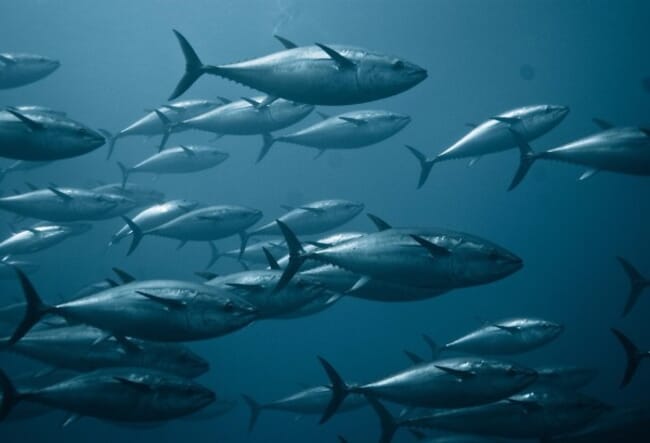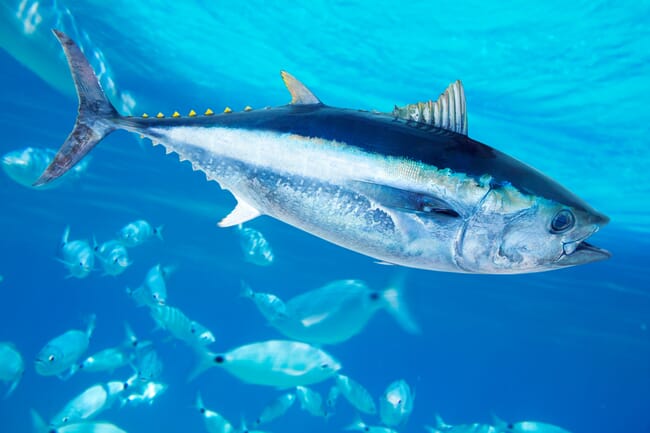
The GDST has recognised technology vendors for their ability to implement traceability standards
In a significant step for the seafood industry, the GDST has recognised three technology vendors and one seafood industry platform that have developed software products that are capable of fully implementing the GDST standards for interoperable digital traceability. The software solutions–independently developed by Mabel Systems, Trace Register, Wholechain and Pacifical have successfully passed the GDST’s Capability Test – a new online platform that allows businesses to verify whether software solutions can deliver on their promises of GDST compatibility. Software products that pass this test are eligible to carry a new “GDST Capable” logo.
“Availability of the first software solutions to earn the ‘GDST-Capable’ logo represents a major advancement for digital seafood traceability,” said Greg Brown, executive director of the GDST. “We now have a realistic way for industry to know if software is capable of fully implementing the GDST Standard.” Noting that the Capability Test was released only a few months ago, Brown added, “It is exciting and encouraging that it has only taken a short time for vendors and industry groups to bring GDST-capable products to market.”
“As promoters of fully traceable sustainably caught tuna from the Pacific Island nations, we are proud to be the first supply chain organisation in the entire seafood industry to be recognised as GDST capable,” said Cynthia Asaf, COO at Pacifical. “We look forward to transferring this ability to all our partners producing or sourcing fully verified sustainable Pacifical tuna and encourage all industry members to join this effort in making interoperable seafood traceability a reality.”

The Global Dialogue on Seafood Traceability said three tech vendors and a platform have developed products capable of implementing GDST standards
Passing the Capability Test requires traceability software to demonstrate its ability to capture all data required by the GDST Standard, to receive and transmit data in the correct formats, and to use a standardised communications protocol. Software systems that meet these requirements can easily interface with one another to support full chain seafood traceability. The release of the Capability Test is the first of several planned tools and tests that the GDST aims to develop to help stakeholders effectively measure implementation claims and progress towards GDST commitments.
“The seafood industry is truly global and standards like the GDST help everyone speak the same language. We choose to adopt the GDST standard in our solution to ensure our customers and their stakeholders can easily share product data to ease regulatory burden and continue to build trust with their consumers.” Said Gavin Andrews, co-founder and CEO at Mabel Systems.
“Mabel Systems, Trace Register, Wholechain, and Pacifical are the first to prove that they are listening to the seafood industry’s unambiguous demands for GDST capable technology,” said Brown. “They are helping industry meet its commitments to traceability and the eradication of illegal, unreported and unregulated (IUU) fishing.”

The GDST standard gives the global seafood industry a common language so all companies can push forward to full chain traceability in every supply chain
Heath England, President, Trace Register, Inc agreed with the importance of the moment, saying, “Trace Register is proud that our TR5 platform is now GDST capable. The GDST standard gives the global seafood industry a common language so all companies can push forward to full chain traceability in every supply chain. The interoperability that GDST brings will propel seafood to the next level of traceability.”
In addition to bearing the GDST-Capable logo, these software solutions will receive recognition on the GDST’s website, which will provide a single place for businesses to identify GDST-Capable solutions.
Jayson Berryhill of Wholechain is also excited about interoperability because of the opportunities for expanded integration with other systems.
“At Wholechain we believe traceability is foundational to achieving a more data-driven food system, and interoperability between traceability solutions is critical to that vision. The GDST Capability Test is an important step to validate that traceability systems are capable of using the standard, and it is unique throughout industry verticals to have such a detailed test of technical capabilities. We are excited to be among the first solution providers to complete the Capability Test and what this will enable for the seafood industry in the years ahead.”




